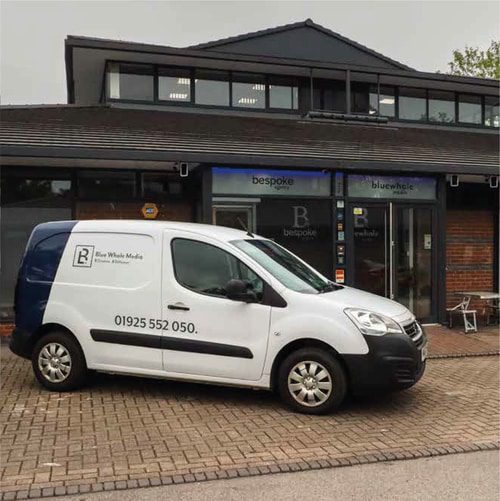
On Page vs Off Page SEO
In an age where everything runs online, On-Page and Off-Page are two primary SEO tactics. These two techniques are required for a website to gain more traffic and rank better on Google. In this post, we will come to understand what exactly are On-Page and Off-Page SEO and the significant differences between the two. There are many elements when it comes to these two optimization methods, and we will be covering everything in detail from the eyes of a SEO expert in Warrington.
Search Engine Optimisation
On-Page SEO and Off-Page SEO are both crucial to your website. However, they both have certain factors different from each other that you should take into consideration. The primary differentiation between On-Page SEO and Off-Page SEO is that On-Page is everything associated with what goes on within your page. While Off-Page SEO has to do with things that are not on your website, such as link building.
What is On-Page SEO?
On-Page SEO defines the content of your page present on your website. Whatever you carry out on your website helps search engines like Google get a better grasp of your site. On-Page aims to improve the rank of different pages on your website in search engines, driving more organic traffic to your website. It also enhances the chances for your website to rank better for the keywords you want to target. With On-Page SEO, you have power over the elements that affect the rankings.
Elements of On-Page SEO
On-Page SEO explains what it is that needs change on your website. In this technique, you have most of the power when you are doing things that occur within your site itself. The essential SEO strategy includes:
URL Structure
A URL, also known as web address, helps a user identify a web page’s location. The URL Structure is an essential factor in On-Page SEO as it improves the experience of the users. The URL structure should also be appropriate and straightforward. Using keywords in the URL helps your site in ranking as well.
Internal Linking
Internal linking helps in improving your On-Page SEO. You can use it to increase search visibility and the revenue of your site. Google considers Internal linking an essential element. Internal links provide you full control. It is up to you where to place the link, which pages they can link to, and which anchor texts they can use.
Title Tags
The title of your page will determine your site’s visibility and ranking in SEO. Depending on a user’s search, you should make sure to create an appropriate title that makes sense and is relevant.
On-Page SEO also takes into account the quality and structure of your content, Meta Description, Alt Text, and your page performance as well. All these elements fall under the category of On-Page SEO.
What is Off-Page SEO?
Off-Page SEO optimization takes place off your website, for example, backlinks to your page from a different site. It refers to the actions that take place outside your website to determine your page’s influence over others. Off-Page SEO is said to be a ranking element which highly boosts your traffic. Off-Page SEO has what it takes to operate faster. It helps you control the power of other high-level websites that have a significant influence on a broader audience.
Elements of Off-Page SEO
Off-Page SEO associates with other optimization factors that occur outside your website. It includes linking building, anchor text, distribution of content, guest blogging on different sites, etc. Some other elements of Off-Page optimization are:
Backlinks
Off-Page aims to increase your website’s authority by getting backlinks from other sites back to your page. The quality and the number of backlinks play a vital role in your site’s search engine optimization. However, many creators and bloggers argue that the quality of the link is more important than the quantity when observed.
Social Media Posts
The option to post your site content on social media is a basis for ranking better in Google. It helps in generating more clicks, which automatically increases traffic. Engaging in social media benefits you in gaining more backlinks and helps your business grow.
Domain Authority
Domain Authority defines the asset of your website and how influential your site is in comparison to others. With the right content and keywords that the readers are searching for, you get more traffic, and it boosts your audience.
All these elements help your page rank better and also boosts your credibility. Off-Page SEO is the outer part of the search engine optimization strategy that maintains the status of your website substantially.
Common Aim
Driving organic traffic to your website is one of the common elements of these two SEO techniques. It results in ranking higher and appearing on the search engine results page (SERP). Combining both methods makes it more comfortable for the audience to move from one page to another within your website. It also helps to grasp the characteristics and structure of your site as well.
Which Is More Important?
Both techniques are of great importance in their own way. However, it is better to implement On-Page SEO first as you can make the changes within your site, and it is manageable. It would be best if you carried out Off-Page SEO after implementing the On-Page optimization on your page.
Once On-Page SEO is executed, and you are satisfied with your website’s content, you need to follow up with Off-Page optimization. This way, the audience is provided with what they seek for, and Google will recognize your website.
Conclusion
On-Page SEO and Off-Page SEO improve your ranking in Google by working together. Both of these techniques are considered the most potent optimization tactics. On-Page plays a vital role in driving more traffic to your website. At the same time, Off-Page SEO is also essential for the growth of your business.
The shared value of both the optimization techniques combined helps in further developing your website. Therefore, you should focus on both methods to drive more traffic to your website and improve your digital marketing strategy.





